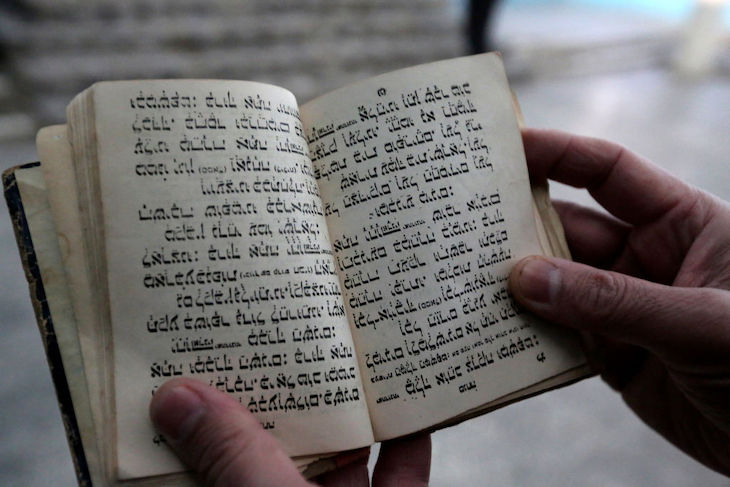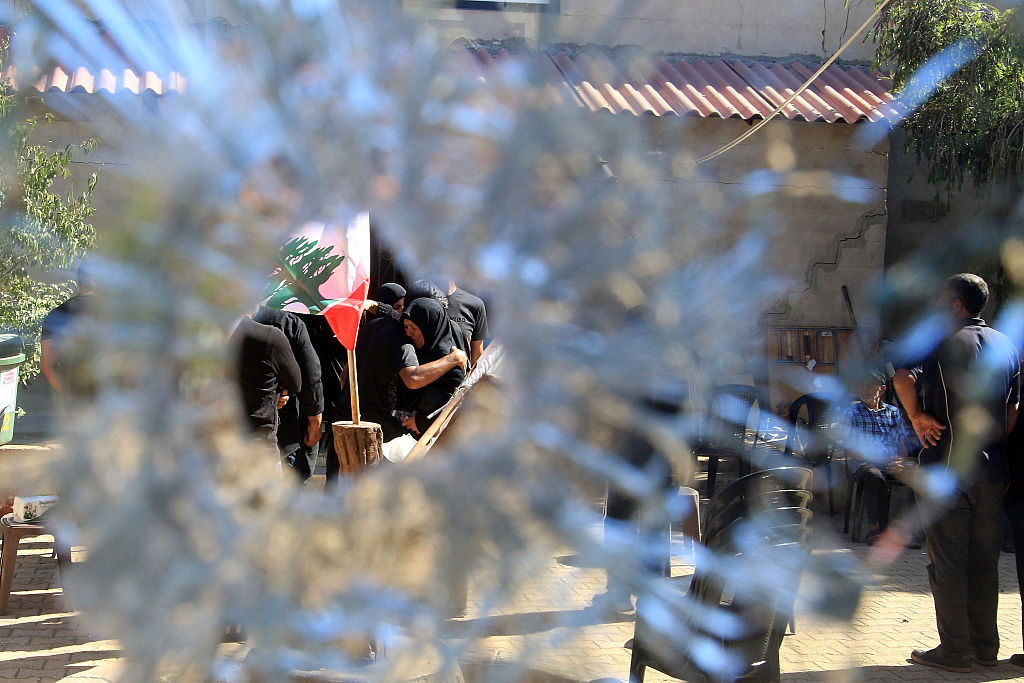In his Spectator review of Avi Shlaim’s memoir Three Worlds, Justin Marozzi refers to the author’s claims about the 1950-51 terrorist bombings of Jewish targets in Baghdad: “Shlaim’s bombshell is to uncover what he terms ‘undeniable proof of Zionist involvement in the terrorist attacks,’ which helped terminate the millennial presence of Jews in Babylon.”
Marozzi calls these claims “controversial” but he doesn’t delve into just how controversial. The charge is that Zionists attacked Iraqi Jews in order to encourage them to flee to Israel.
There are several problems with this theory. As the investigative journalist David Collier has argued, “these explosions did not cause the exodus… the Iraqi Jews were persecuted, were offered a window to leave, and despite the fact they had to leave everything behind, they almost all left…”
Nothing short of war would make an entire civilian population leave, Collier argues, not a few violent incidents.
Take France, for example, where a number of deadly attacks have taken place over the past ten years. Yet the French Jewish population has not been uprooted — just 33,000 left for Israel over the ten-year period, only about 8 percent. And, as Collier points out, “this is a situation where unlike those forced out in Iraq, French Jews could take everything with them.”
Furthermore, contemporary news reports in 1950-1951, including Jewish press, show very few references to these attacks. “Nobody was talking about them as a factor,” says Collier. “If it were a ‘Zionist plot’ — why is there no reference to the fear factor blamed on these bombings? It is therefore far more likely that the importance of these bombs was exaggerated years later — and only because they became useful tools for antisemites and anti-Zionist propaganda.”
According to Marozzi’s piece “although Israel has consistently denied any involvement in these attacks, suspicion has hung over the clandestine activities of Zionist agents tasked with persuading the Jewish community to flee Iraq and settle in Israel.”
They needed no such persuading. The Jews of Iraq had been subjected to persecution for years. In 1941 they suffered the horrific Farhud pogroms: over 180 Jews were murdered, hundreds injured and hundreds of Jewish homes destroyed. But even before the Farhud, Jews were targeted: 1938 saw a documented bombing campaign against Jews in Iraq “that cannot be explained away on ‘Zionist agents’; and in 1947 a Jewish man was lynched for ‘giving kids poisoned candy’ and the Jewish quarter of Fallujah was ransacked.”
Before the partition vote, the Iraqi foreign minister threatened the expulsion of Iraqi Jews, and by 1948, on the hearsay of two Muslims, any Jew could be thrown into jail for years as a “Zionist.” Throughout the land, Jewish banking rights were restricted, Jews were banned from most civil service positions, Jewish businesses were boycotted and countless Jews were arrested and dispossessed. Also in 1948, Iraq’s richest Jew, Shafiq Ades, was executed after being found guilty of selling weapons to Israel without evidence and refused a defense. Such levels of anti-semitism are not dissimilar to what happened in the early phases of Nazi Germany.
By the time of the 1951 bombings, most Iraqi Jews had already registered to leave, yet according to Esther Meir-Glitzenstein’s Zionism in an Arab Country, “Israel had only managed to evacuate some of them, which meant tens of thousands of Jews were already trapped in no-mans-land.”
By September 1950, only 10,000 Jews had left; 60,000 of the 70,000 registrants were still in Iraq. By mid November the backlog was 65,000. Why — even leaving aside the moral monstrosity of the process by which Shlaim alleges it did so — would Israel seek to speed up a flow of immigrants it was already struggling to process?
Shlaim describes how his father, by then in his fifties and unable to speak Hebrew, was completely undone by the move to Israel. His vivacious mother was forced to exchange “the gilded life of a society hostess in Baghdad, for a mundane job as a telephonist in Ramat Gan.”
What Shlaim describes is likely Israel’s Maabarot — make-shift housing, set up by Ben Gurion to process the tsunami of incomers, many of them Holocaust survivors, to the new state. Many thousands of Jews arriving in Israel during the Fifties stayed there. Both Mizrahi (Sephardim) and Ashkenazi Jews lived under these conditions. Shlaim’s family was not unique in its misfortune and physical hardship. Very few spoke Hebrew.
In any case, Israel was just two years old in 1950, a struggling, poor state at the very start of a trying journey. The harsh conditions were seen by immigrants as a necessary compromise worth making in exchange for safety, after centuries of persecution culminating in the Holocaust.
According to Shlaim, the Sephardim, Jews from Arab lands, were looked down upon by the Ashkenazim, their European counterparts. When Arab Jews arrived in Israel, many Ashkenazim were already settled there for generations — they were the pioneers of the first and second Aliya who built the kibbutzim and laid the foundation for the Jewish state. Every new group of immigrants was belittled by the natives. In due course this group looked down upon newcomers from other states.
Shlaim claims that “the Zionist project dealt a mortal blow to the position of Jews in Arab lands, turning them from accepted compatriots into a suspected fifth column allied to the new Jewish state.” On the contrary, the Zionist project enabled the miracle of Jews returning to Judea, and the creation of a safe haven for Jews after centuries of persecution, discrimination, murder and degradation, culminating in the Holocaust. It’s a shame that an article in The Spectator overlooked that point.
This article was originally published on The Spectator’s UK site. Subscribe to the World edition here.

























